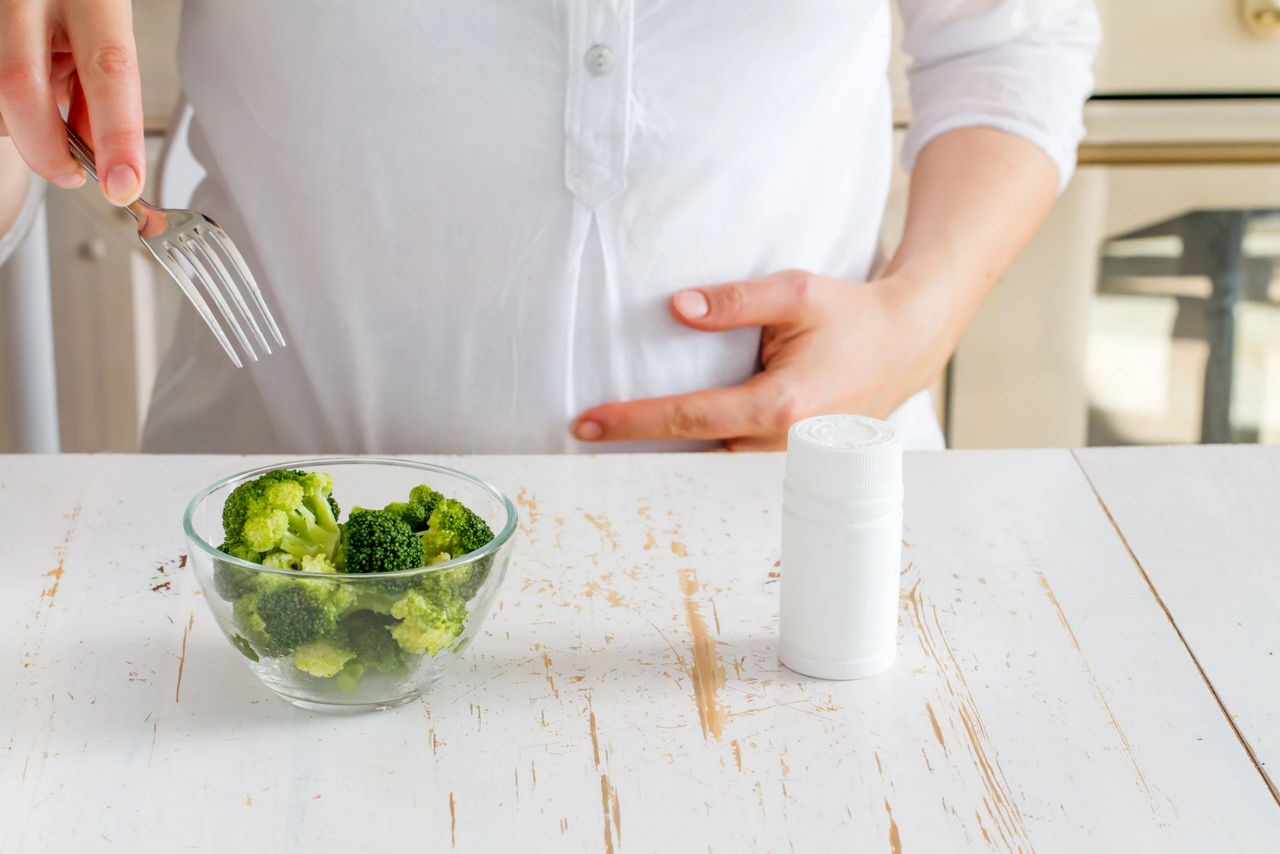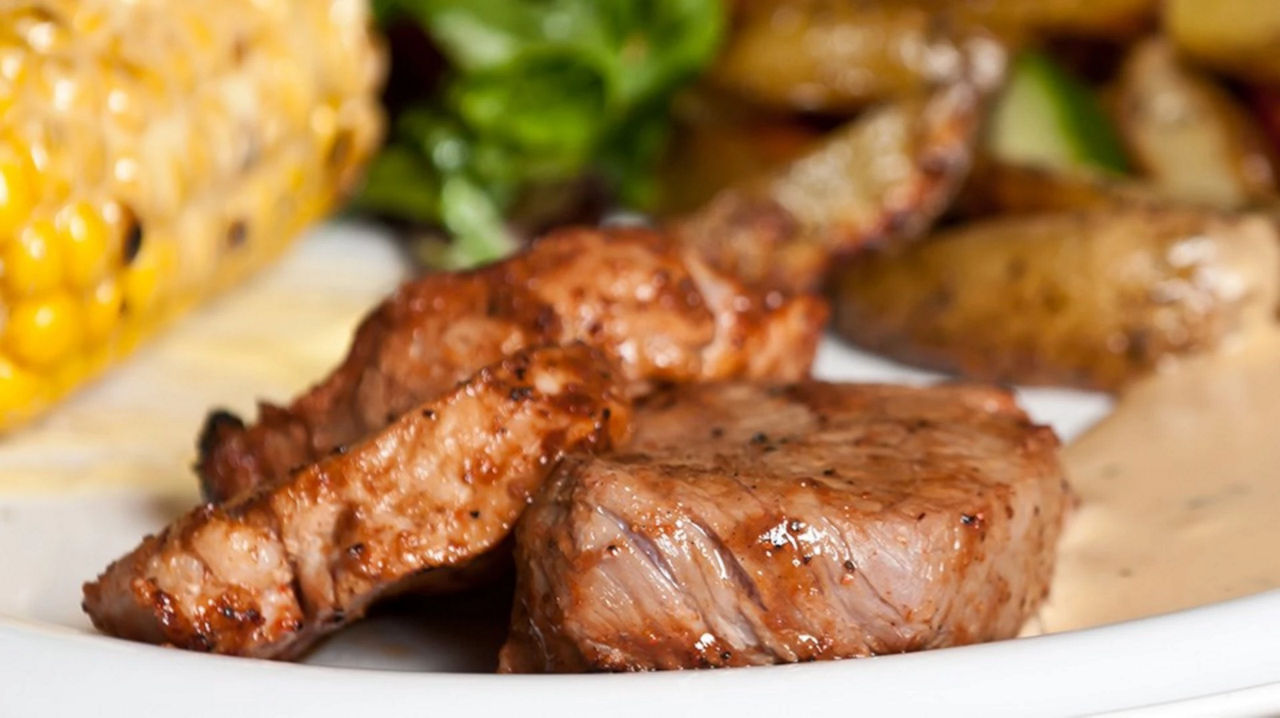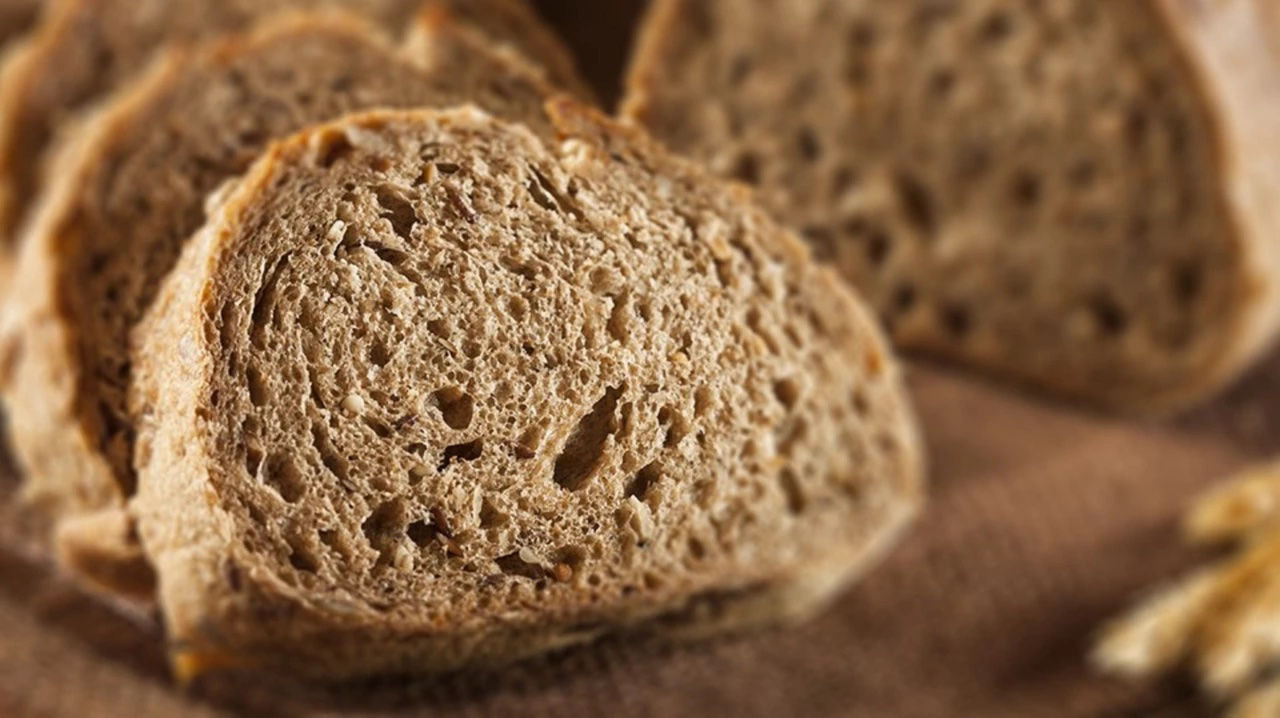With a vital role supporting every cell in the body, protein is important for you and your baby as part of a healthy pregnancy diet . Discover how much protein you need when you’re pregnant and good sources of protein.
Protein for pregnancy
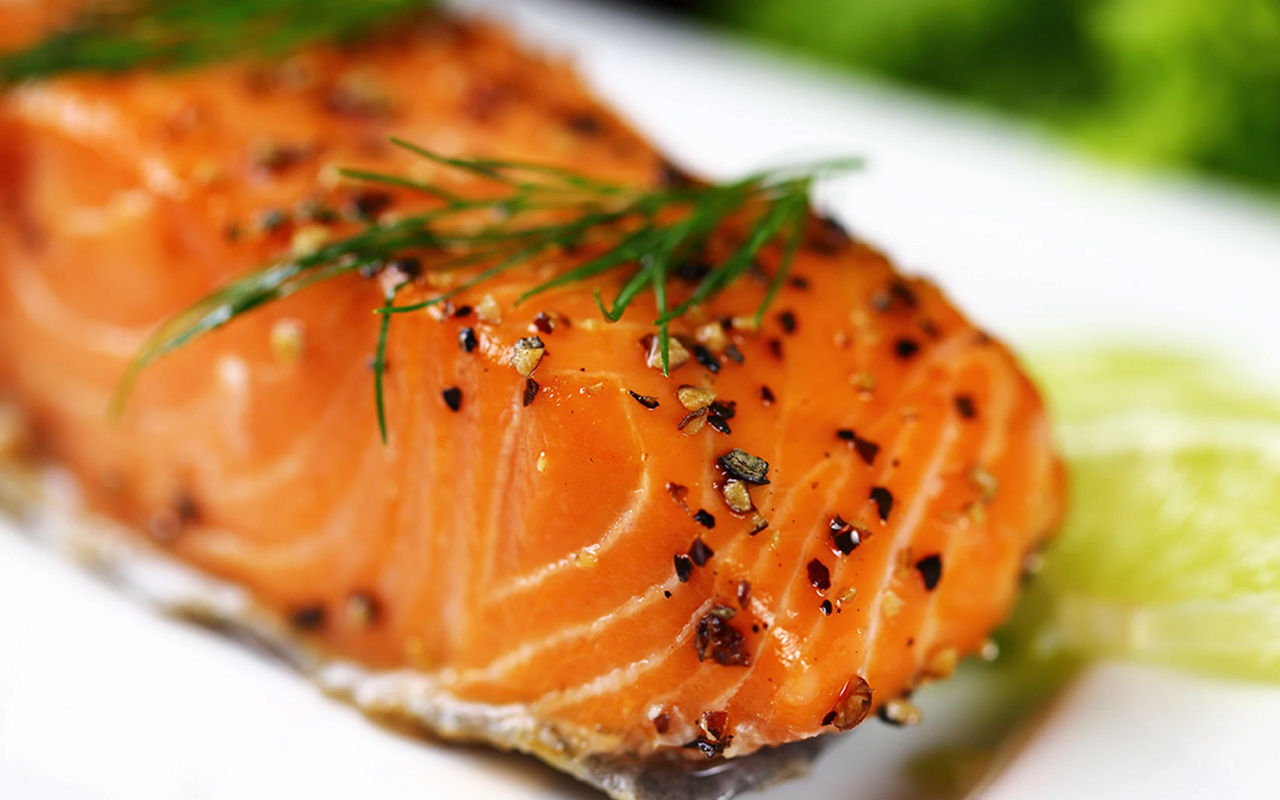
What is the role of protein during pregnancy?
Proteins are found in every cell of the body, making up skin, muscles, hair, fingernails and all other tissues. They provide structure to cells and help them function properly, as well as helping cells repair themselves1.
Protein has a vital role during pregnancy because it helps your baby grow normally while contributing to other important areas of their development, including2:
- Growth and repair of new and damaged tissues.
- Making antibodies for their immune system.
- Making hormones and enzymes.
- Helping muscles function properly.
- Transporting oxygen through their blood.
Getting the recommended amount of protein may also help to promote a healthy birthweight. A baby with a healthy birthweight has a reduced risk for developing diabetes or becoming overweight later in life3.
The role of protein during pregnancy enables your baby’s cells to function well from the start. All future growth and development then has a strong foundation to build upon, throughout infancy, childhood and beyond.
How much protein do you need when you’re pregnant?
You require a slightly higher intake of protein during pregnancy to help with the various changes your body goes through to support your baby’s growth.
The Reference Nutrient Intake (RNI) of protein for adults is 0.75g per kg of bodyweight per day, plus an additional 6g per day for pregnant women4.
So, for a woman weighing 60 kg, they will need: 60 x 0.75g/d = 45g of protein a day and 51g during pregnancy4.
A good rule of thumb is to include a portion of protein at every meal so that you’re getting 2-3 portions per day5. A portion is generally equivalent to the size of your palm.
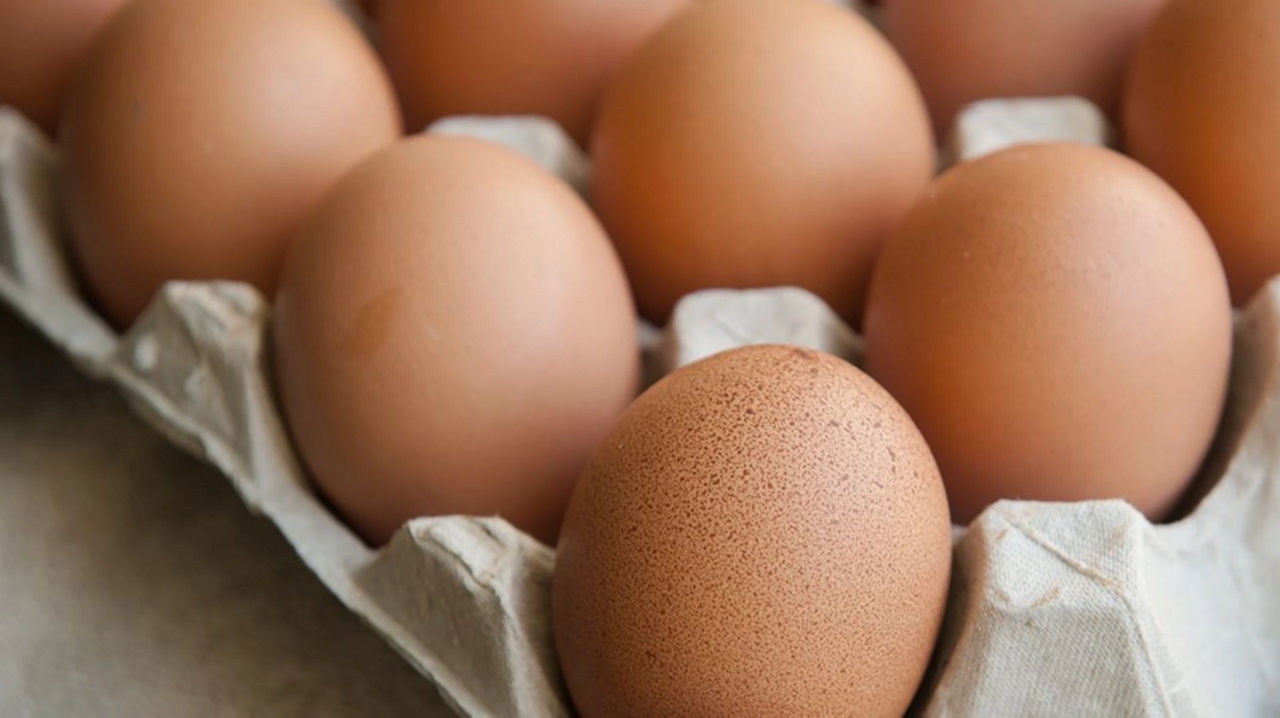
Good protein foods for pregnancy:
It’s not just the quantity of protein that matters. It’s also important to eat a variety of protein sources because different proteins provide different amino acids5. 'Eating a variety of protein sources will also provide you with a variety of vitamins and minerals. Read about the vitamins and supplements you need when you’re pregnant.
Sources of protein include:
Choose lean cuts of meat or poultry such as a chicken breast without the skin, as they are lower in saturated fats.
Find out more about eating meat during pregnancy.
A particularly rich source of protein is oily fish, such as sardines and salmon, which have high levels of brain-building fatty acids. Try to eat up to 2 portions per week, but no more because of the potential mercury that some fish can contain5.
Read more about eating fish in pregnancy .
There’s good news surrounding eating eggs during pregnancy. Eggs are an excellent source of protein and pregnant women can now eat raw hen eggs as long as they bear the British Lion mark6.
Read more about eating eggs during pregnancy.
Along with being a good source of protein, cheese and dairy contain other vital nutrients such as calcium, phosphorus and vitamin D6. However, some cheeses can contain bacteria which can be harmful during your pregnancy.
Read more about eating cheese and dairy during pregnancy.
Good plant-based sources of protein include red lentils, chickpeas, kidney beans, baked beans and tofu1.
Add walnuts, hazelnuts and almonds to salads, smoothies or with breakfast cereal for an additional intake of healthy protein.
These foods are frequently eaten in the average western diet, so unless you are vegetarian or vegan, you probably don’t need to adjust your intake to meet your increased needs. People who choose to avoid animal products can get many of the essential amino acids by eating a variety of fruits and vegetables.
Read more about pregnancy superfoods.
Healthy protein snacks for pregnant women
With a vital supporting role for every cell in the body, protein is essential for you and your baby.
Most people in the UK are getting sufficient protein from their diet. However if you are struggling to eat meals, you can increase your protein intake throughout the day with these healthy snack ideas6:
- A small sandwich or pitta bread with grated cheese, lean ham, mashed tuna, salmon, or sardines, with a salad.
- Hummus with carrots, cucumbers or celery.
- Vegetable and bean soup.
- Baked beans on toast or a small baked potato.
- Low-fat, lower-sugar fruit yoghurt, plain yoghurt or fromage frais with fruit.
Explore our healthy pregnancy snack recipes.
Related Topics
Read next

Get in touch with our Careline experts
Our nutritionists and feeding advisors are always on hand to talk about feeding your baby. So if you have a question, just get in touch
- British Nutrition Foundation. Protein [Online]. 2012. Available at:https://www.nutrition.org.uk/nutritionscience/nutrients-food-and-ingredients/protein.html [Accessed February 2020]
- Wu G. Maternal nutrition and fetal development. The Journal of Nutr 2004; 134(9)2169-2172.
- British Nutrition Foundation. Nutrition requirements [Online]. 2015. Availableat: https://www.nutrition.org.uk/attachments/article/234/Nutrition%20Requirements_Revised%20Oct%202016.pdf [Accessed February 2020]
- British Nutrition Foundation. Protein [Online]. 2012. Available at: https://www.nutrition.org.uk/nutritionscience/nutrients-food-and-ingredients/protein.html [Accessed February 2020]
- NHS. Fish and shellfish [Online]. 2018. Available at: www.nhs.uk/Livewell/Goodfood/Pages/fish-shellfish.aspx [Accessed February 2020]
- NHS. Healthy Pregnancy Diet [Online]. 2017. Available at: https://www.nhs.uk/conditions/pregnancy-and-baby/healthy-pregnancy-diet/ [Accessed February 2020]
Last reviewed: 28th July 2020
Reviewed by Nutricia’s Medical and Scientific Affairs Team

